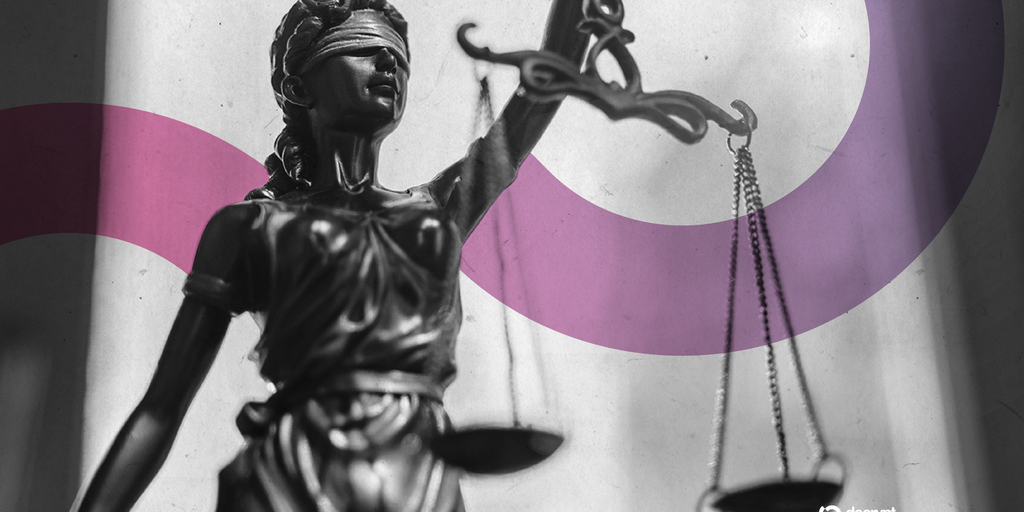
In brief
- Prosecutors admitted that early Telegram logs omitted key metadata that could have helped identify the messages as forwarded.
- Storm’s defense says the misattribution may have misled a grand jury and tainted the case.
- A legal expert says the error raises concerns about authentication and hearsay under federal rules.
Lawyers for Roman Storm, co-founder of the crypto mixer Tornado Cash, accused U.S. prosecutors of presenting misleading evidence, just days before his criminal trial.
In a court filing late Friday, Storm’s defense team said prosecutors misrepresented key Telegram messages taken from co-defendant Alexey Pertsev’s phone. The messages, they allege, lacked proper attribution and may have influenced a grand jury with false information.
The dispute centers on chat logs extracted by U.S. agent Peter Dickerman from a device seized by Dutch authorities. The government initially told the court it produced the relevant chats in September 2023.
Still, it corrected that claim Friday, acknowledging it only shared the final version of the chats, clearly marking forwarded messages, in December 2024.
Storm’s counsel called the error emblematic of broader evidentiary failures, saying the incomplete extraction omits key metadata and that U.S. prosecutors have “compounded the serious errors” by insisting the evidence is reliable.
The government’s theory appears “absurd,” Storm’s lawyers wrote, arguing that forwarding the reporter’s message “does not remotely suggest that he is actually asking how to launder criminal proceeds.”
“It would be like saying that, when the victim of a threat forwards to the police a message he received that says, ‘I’m going to burn your house down,’ that the victim is now saying he is going to burn the police officer’s house down,” the lawyers wrote.
Storm is charged with conspiracy to commit money laundering and operating an unlicensed money transmission business through the protocol.
A question of authenticity
In a letter filed Saturday in New York, Assistant U.S. Attorneys Ben Arad, Thane Rehn, and Benjamin Gianforti, signing as line prosecutors on the case, acknowledged that earlier versions of the chats, produced in September 2023, were shared as plaintext files.
These, like the HTML files initially received from Dutch authorities, “do not identify when a message was forwarded,” the prosecutors wrote, adding that the “Bablo chat” where the disputed message appeared “was not included in that production.”
According to the prosecution, the version it intends to use at trial was extracted directly by IRS Special Agent Dickerman and shared with the defense in December 2024.
Prosecutors argue that the earlier formatting “has no bearing on the authenticity” of the evidence and that the defense had those properly formatted messages for over seven months before they raised the issue, three days before trial.
Rules and errors
But the strength of the defense’s objection depends on “the degree of prosecutorial error,” whether the original speaker can verify the statement, and if other evidence supports the charges, Andrew Rossow, digital media attorney and CEO of AR Media, told Decrypt.
The flaw surfaced as Storm’s team reviewed hundreds of government exhibits disclosed late last month. Unlike standard Telegram messages that show where a message was forwarded from, the government’s version omits that metadata.
“Without the author metadata, reliability and admissibility are undoubtedly placed under a higher level of scrutiny because you must address authentication issues and hearsay concerns,” Rossow explained, citing federal rules of evidence, which require the government to prove that any evidence is what it claims to be.
Asked whether the late correction bolsters the defense’s position, Rossow agreed.
“Prosecution can’t benefit from their timely reveal of their own mistakes,” he said, adding that “the attribution error carries full weight.”
Rossow points to Brady v. Maryland (1963), a landmark case that established what’s now known as the “Brady rule.” Under this, prosecutors have a continuing duty to correct material misrepresentations throughout proceedings.
This kind of late discovery, Rossow said, “might actually strengthen the defense argument,” could even strengthen the defense, “depending upon whether prosecutors knew about this earlier on but didn’t disclose or any patterns of mishandling,” or if parts of the case are determined to rest on flawed evidence.
Decrypt reached out for comment to the DOJ and Storm’s legal counsel from Waymaker LLP and Hecker Fink LLP.
Daily Debrief Newsletter
Start every day with the top news stories right now, plus original features, a podcast, videos and more.
https://decrypt.co/329975/tornado-cash-roman-storm-doj-botched-telegram-evidence








